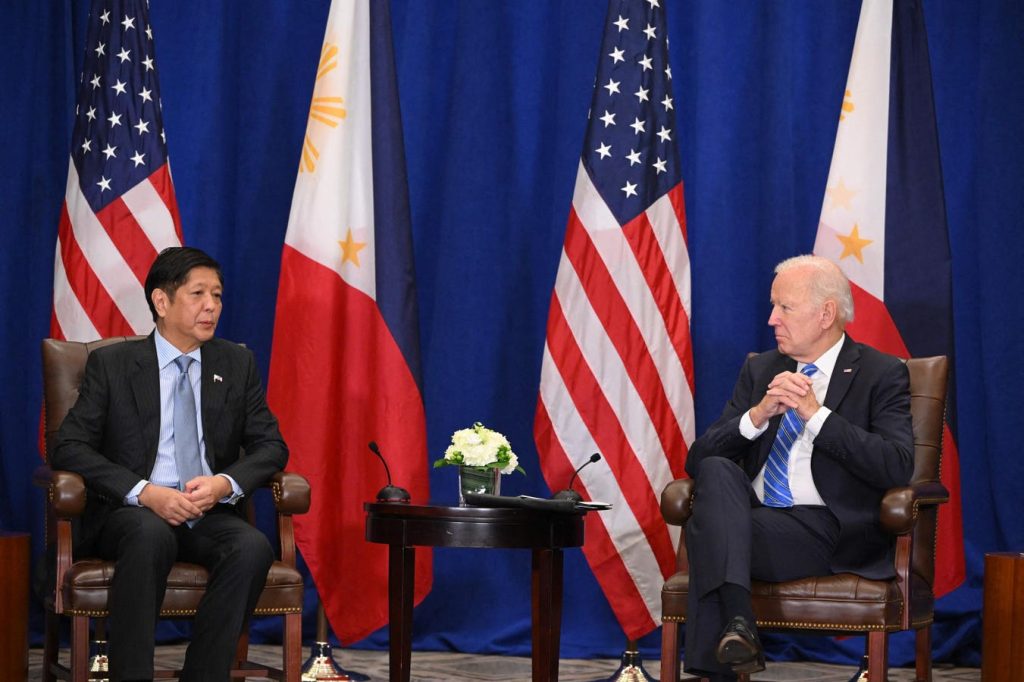تباطأ البيع بالتجزئة في الولايات المتحدة والفلبين يمكن أن يساعد بالتأكيد. مع استكشاف العديد من مشاكل البيع بالتجزئة في الولايات المتحدة ، يبدو أن الشكاوى غالباً ما تميل في اتجاه واحد. سواء كان السبب في ذلك تكلفة التمويل العالية للمخزون أو التفاهة الاستهلاكية، فإن قطاع البيع بالتجزئة يشير بأصابع الاتهام إلى إدارة بايدن – لأن المبادرات الدولية لحصول على المنتجات غائبة إلى حد ما، بالإضافة إلى نقص عام في الحماسة للبيع بالتجزئة سواء في البيت الأبيض أو في الكابيتول هيل. مشكلة محددة تظهر عندما يسأل البائعون الحكومة سؤالًا: “إذا كنتم ترغبون في الخروج من الصين – إلى أين يجب علينا الذهاب؟ – ولماذا يتم حجب أبواب الخروج؟”
في هذه الأيام (في قطاع البيع بالتجزئة)، يصعب على الشخص أن يسمي تنفيذيًا كبيرًا حافظ على منصبه في فريق القيادة لفترة طويلة من الزمن. بالإضافة إلى ذلك، هناك جريان لا ينتهي من إفلاسات التجزئة وإغلاق المتاجر وعدم تحقيق أهداف المبيعات – مما يجعل هذه الصناعة تبدو كبركان خامد ينبعث منه شظايا.
من ناحية، تشجع الحكومة الفيدرالية على الخروج من الصين – ومن ناحية أخرى، البيروقراطية الفدرالية لا تقدم بدائل عملية أو فرص قائمة. بالإضافة إلى ذلك، من هم يحصلون على المنتج النهائي أو المكونات أو حتى المواد الخام من الصين متورطون الآن في شبكة مشمولة بقانون منع أسر الأويغور من العمل (UFLPA) – حيث يستمر جمر جمر الاستفسارات الجمرية عن البضائع عند الحدود الأمريكية – التي يمكن أن تعقد لأشهر بدون شرح، مما يتسبب في عدم قدرة البائعين في بعض الحالات على تجاوب مع فصول البيع بينما يتكبدون تكاليف قانونية ولوجستية خطيرة.
من أجل النمو، يحتاج البيع بالتجزئة إلى تطوير أماكن جديدة للحصول على المنتجات، لكن الكونغرس وممثل التجارة الأميركي وإدارة بايدن يبدو أنهم يعرقلون تحقيق هذا الهدف. بالإضافة إلى ذلك، الأحداث العالمية غير المتوقعة تستمر في عرقلة خطوط التوريد البالقة وزيادة تكاليف التضخم. كمثال، العديد من سفن الحاويات تتجنب القناة السويس بسبب عدوان الحوثي، كما أنها تتجنب قناة بنما لأنها منخفضة على المياه وبالطبع – تتجنب ميناء بالتيمور بسبب تصادم الجسر الأخير. الموردون الذين يصنعون في ميانمار يجب أن يتعاملوا مع حكومة عسكرية، والذين في إثيوبيا فقدوا فوائدهم بموجب النمو والفرص (AGOA)، والذين في هايتي تحت الحصار من قبل العصابات التي سيطرت على جزء كبير من بورت أو برنس. Looking to catch a break, retailers and brands often turned to the Philippines for product – because they maintain quality factories and also have a highly skilled labor force. Unfortunately for the Philippines, several years ago, when China ascended to the WTO and quota disappeared, the country lost more than 500,000 manufacturing jobs – as the business migrated to China.
Retail remembers that former President Trump was open to a Philippine Free Trade Agreement, but that idea collapsed with (then) President Duarte’s war on drugs and the extrajudicial killings that seemingly ran amuck. Now, with a more USA friendly President Marcos in power, it is surprising that team Biden has yet to achieve some sort of new trading solution – that would allow for goods to effectively move back from China to Philippine production.
Looking at historical facts, one can only wonder why the veil of protective trading with the Philippines hasn’t been lifted. The United States gained control of the Philippines in 1898 – long before the Japanese invaded the country in 1941. The Japanese forces were ousted by U.S. General Douglas MacArthur in 1945, and total independence for the Philippines was achieved in 1946. Since that time – there have been only two formal trading arrangements with America, and the last one ended 50 years ago.
The U.S. Congress passed the Bell Trade Act in 1946 which was not very popular because it gave “parity” to both U.S. Citizens and Filipinos for certain transactions. The Bell Trade Act was superseded by the Laurel-Langley Act which ran from 1955 to 1974. Truth be told, many, many years have now passed with no significant agreement to foster commercial ties and trade with America
When WWII broke out in the Pacific, the Philippines provided more than 250,000 troops towards America’s war effort against Japan. But, when it came to post-war trade with the USA, President Obama, offered the Trans-Pacific- Partnership (TPP) to Japan, and not to the Philippines.
When the Korean War broke out, the Philippines provided 7,400 troops towards America’s war effort. But, when it came to trade with the USA, President George W. Bush (and then President Obama), gave Korea a full-fledged Free Trade Agreement named KORUS and there was nothing for the Philippines.
When the Vietnam broke out, the Philippines provided more than 10,400 personnel for medical and civilian activities towards helping America’s war effort against North Vietnam. But, when it came to trade with the USA, President Obama offered the Trans-Pacific- Partnership (TPP) to Vietnam, and not to the Philippines.
As President Marcos visits the White House this week, retailers hope there is continuing dialogue for some sort of preferential trade preference. The Philippines was once a significant source of USA bound commercial activity – especially for the fashion and accessories industries. If there were to be a trade program between the USA and the Philippines, the many jobs that were ceded to China could easily return to the Philippines.
There is an Aesop’s fable about two friends and a bear that helps explain this subject pretty well.
Many years ago, two friends were walking in the forest when they were approached by a scary bear. Frightened, one friend lay quietly on the ground and did not move – while the other quickly climbed a tree to escape. The scary bear sniffed the ear of the friend on the ground and eventually moved away. The friend from the tree climbed down and asked what the scary bear had said.
The friend on the ground looked him straight in the eye:
The bear told me that a true friend will never abandon you, no matter what the circumstances.


